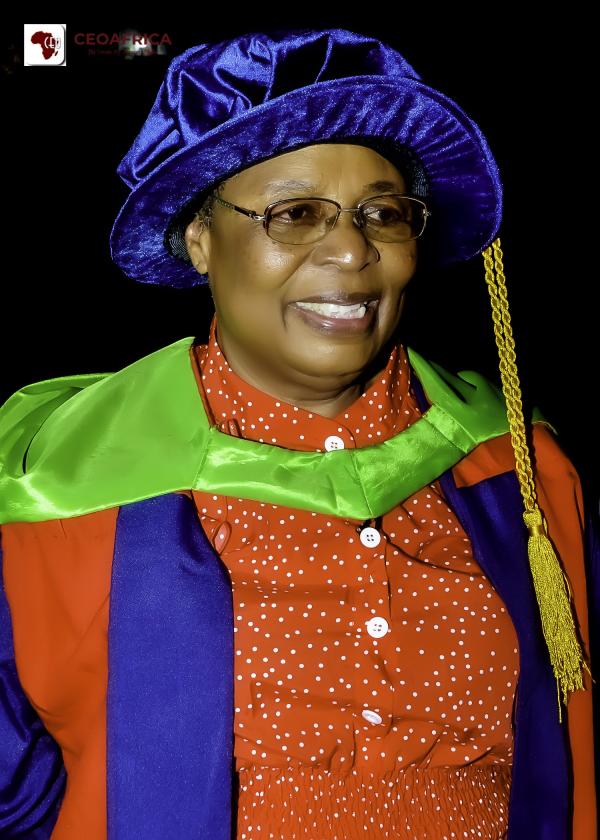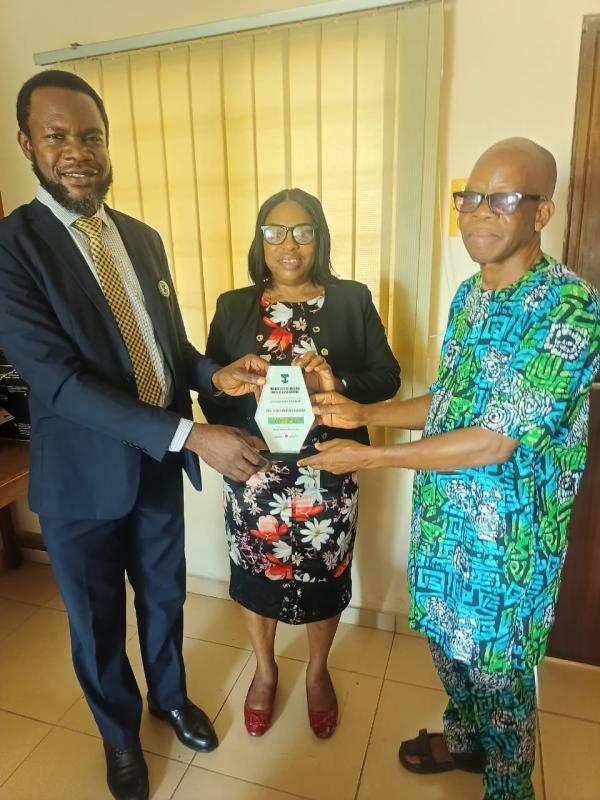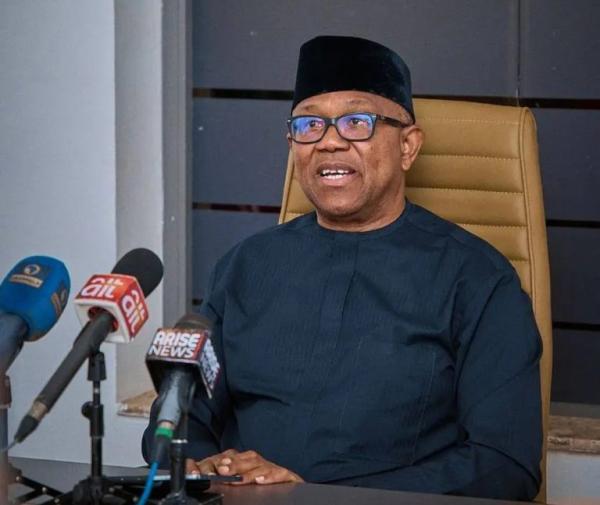
The saying that “the real power of a leader is in the number of minds he can reach, hearts he can touch, souls he can move, and lives he can change” becomes an apt description of Professor Lucia Omobolanle Ogunsumi, who has taken Nigeria’s agricultural sector upon her shoulders to ensure attraction for farmers and investors, growth and development of the sector, that will not only boost Nigeria’s economy, but also salvage the current food crisis, hunger and poverty in the country.
Ogunsumi’s triumph over many hurdles on her path to the peak of her academic career became a driving force and motivation for the many achievements and successes in her life endeavours. Losing her father at a very tender age carved an impossibility for her education, but she scaled through with the favours that came her way. Today, Professor Lucia Omobolanle Ogunsumi is a Professor of Agricultural Extension and Rural Development at the Obafemi Awolowo University (OAU), Ile Ife, Osun State, Nigeria. On her recent achievements, she became the first female Professor from the Department of Agricultural Extension and Rural Sociology, OAU to have delivered an inaugural lecture which also serves as the first to be delivered in the Southwest Farming Systems Research and Extension Programme.
At the 380th inaugural lecture of OAU titled “Farmers’ Peculiar Treasure: The Sustained Use of Technological Approach,” which she delivered on Tuesday, Marh 12, 2024, Ogunsumi told CEOAFRICA that with enough adequate technologies in agriculture, farmers will be encouraged to increase output and Nigeria will attract more investments in the sector. Driven by a passion for sustained use of technological approach towards the development of Nigeria’s agriculture, her wealth of experience at the Lagos Ministry of Agriculture and Natural Resources (1976-1987), the International Institute of Tropical Agriculture (IITA) between 1988-1994, and the skills acquired through the African Women in Agricultural Research and Development (AWARD), among others, founded her judgement that “precision agriculture, digital platforms and climate-smart farming practices offer a path to revolutionize Nigerian agriculture. By adopting these technologies, farmers can improve yields, reduce waste, and enhance resilience to climate change,” stressing that farmers need to adopt and embrace the use of technology for agricultural revolution.
With the current food crisis, food inflation, food insecurity, hunger, and poverty prevalent in the country, the Professor of Agricultural Extension opined that the endowment of the country with substantial natural resources, specifically, land and water that can produce variety of crops, livestock, forestry, and fisheries products, can be channelled for better use when proper systems are made available by the government. According to her, “sustained use of technological approach serves as a platform to underscore the crucial value of technology in agriculture, elevate the agency of farmers in leveraging technological innovations, and advocate for sustainable, contextually relevant technology adoption within the agricultural sector.”
No doubt, Prof. Ogunsumi is walking the talk, and has led the way with practical examples of many of her academic engagements, community service and outreaches. She was the first female Team Lead for Oyo State Agricultural Development Programme (2007-2011) before her deployment to Lagos State Agricultural Development Authority. While at Oyo State ADP, over 30 Monthly Technology Review Meetings (MTRM) were conducted covering all agricultural development zones such as Ibadan-Ibarapa, Oyo, Ogbomosho, and Saki. She was also the Secretary of the Southwest Research Extension Farmers Input Linkage Systems (REFILS) between 2009 and 2016. Ogunsumi served as the Coordinator of the West African Agricultural Productivity Programme (WAAPP), a project funded by World Bank where she led many extension activities and achievements. She currently serves as the Chairperson, Rural Development Technical Board of the Justice Development and Peace Movement (JDPM), Oyo Diocese, a faith-based nongovernmental organisation where they have increased farmers’ productivity and income leading to improved wellbeing. Some of the activities and achievements recorded in these positions of service include, field visits, workshops for farmers and agricultural stakeholders, distribution of seeds to farmers, donation of boreholes, meetings with Fulani communities to establish peaceful co-existence with farmers, inauguration of stakeholders’ forum and formation of value chain platforms viz crops cassava, maize, cocoa and poultry, establishment of farms for crops and livestock production, among several others.
For Ogunsumi, if Nigeria will attain the heights of agricultural production, agricultural technology is the way to go, because it offers to farmers, increased productivity, resource efficiency, risk mitigation, and improved economic prospects. In her lecture delivery, Prof Ogunsumi also provided a practical template for government, policymakers, leaders in the industry and agricultural practitioners, to improve on for the promotion of sustained use of technological approach in farming. This includes investment in research and development which will yield novel tools and practices that address the evolving needs of farmers; building digital infrastructure that will help farmers harness the full potentials of digital agriculture; promoting education and training such as capacity-building initiatives focused on digital literacy, precision farming techniques and interpretation of data-driven insights.
Others are, fostering public-private partnerships that bring together government agencies, agricultural companies, research institutions, and farming communities to facilitate co-development and deployment of cutting-edge solutions; establishing supportive policies that incentivize the adoption of sustainable technological practices, such as tax incentives for investment in precision agriculture equipment, subsidies for the implementation of conversation-focused technologies and regulatory frameworks that enable responsible biotechnological advancements; encouraging knowledge exchange to facilitate collaboration and learning within the agricultural community; and ensuring inclusivity and equity in catering for the diverse needs of smallholder farmers, women in agriculture, and marginalized communities.






















